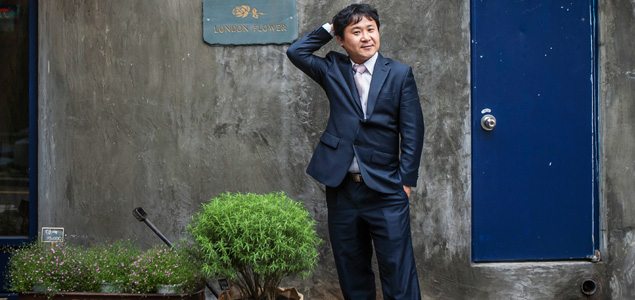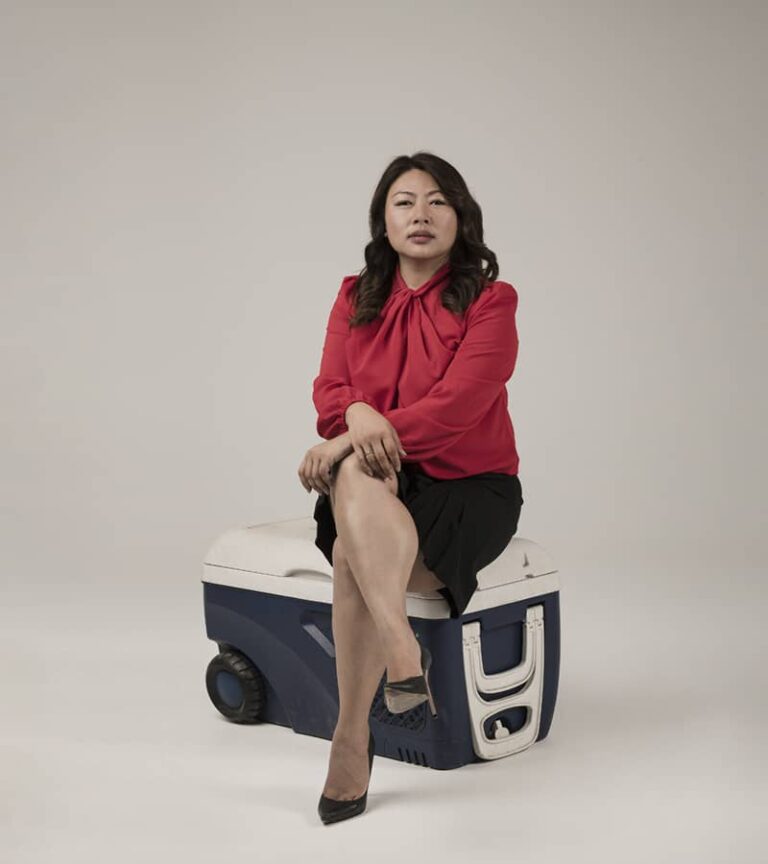THE WORLD’S MOST SECRETIVE COUNTRY
A former court poet and propagandist for North Korean leader Kim Jong-il, Jang Jin-Sung was forced to defect after a life changing turn of events. He describes to MiNDFOOD the atrocities he witnessed during the totalitarian regime and his heart stopping flee to freedom.
I was born in Sariwon, south of Pyongyang. I grew up like any other kid there – we liked to play this popular Korean game – it is like gambling but you play with paper rather than cards. When I finished school, I started my career in the Central Broadcasting Committee and then I got scouted by the United Front Department, otherwise known as “the window into and out of North Korea.” After more studies, I started my career there with the counter intelligence team as a poet.
When I met Kim Jong-il for the first time, I was so full of fear and anticipation. The whole process of going to meet him was so convoluted and full of security that I had an overwhelming fear during the whole procedure. It was like going to meet God, the most powerful man in the world, who could kill anyone with the wave of a hand. But when I met him, the whole façade collapsed so quickly. Because the propaganda that built him up to be a certain kind of person was ironically so false and so meticulous that all it took was seeing him once for it to fall. Think of a really white, clean sheet and how visible a blot of ink is on it. But when you have blot on a dirty carpet, you can’t really see it. For the outside world, because they have heard so many narratives about Kim Jong-il, when they meet him, they might not have the same reaction as a North Korean, because an inkblot on a dirty carpet is not the same.
The second time I met him, it was still the same kind of amazing procedure but it just felt like a procedure, a routine thing. When I was in his presence again, I was thinking, I know you’re just a human being. If only you’d stop being the man you were, then 20 million people could start fulfilling their dreams.
There’s a line you hear when you take part in a military parade: “oh let there be glory with our nation’s soldiers.” Those are the only actual unfiltered words of Kim Jong-il that any North Korean citizen has ever heard in their lifetime – that is how removed from reality he is as far as the people are concerned.
The first doubts and questions I started having about the regime were when I started working for the United Front Department and gained access to censored outside literature and media. All the contradictions between what we were taught and what actually was were overwhelming. Growing up, I was taught that South Korea was a colony of America and the images we received were similar to those of how the Americans once treated African American slaves. We thought that South Koreans were being treated like that: being whipped in the cotton fields. When we realised South Koreans were actually exporting products to America, it turned the image on its head. Oh, they’re not taking stuff, they’re buying stuff? That makes no sense at all. We were taught that North Korea was the most amazing place in the world, but the only time North Korea was mentioned outside of the country was in the context of our supreme leader. He was the only great thing about North Korea, whereas I’d heard about many South Korean companies mentioned in outside newspapers. How come South Korea was known for so many things but we were only known or our leader?
There’s a hello greeting in Korea, which translates to ‘have you eaten today?’ It’s a standard greeting, but it was taken quite literally: “Have you eaten today?” was often the first question you asked someone, before “how are you” even.
The most painful thing I witnessed under the regime was a pregnant woman dying of starvation. But atrocities were happening everyday. Because it was so cold and there was no heating, people had to burn fuel and briquettes in their houses, so a lot of people would die from the gas poisoning, as you had to keep awake to keep changing it. People were so desperate that life became worthless. So many women had turned to prostitution that it became normalised. The meaning of life was reduced to eating the next meal; it became about survival rather than about living.
When I worked at the United Front Department, the regulation was that if you take foreign materials out, you get executed for treason. That is the highest category of treason, where three generations of your family are then killed. So when my friend lost the banned magazine I lent to him, the only thing we could think to do was to escape – not just to save our lives (because we really thought we were going to die anyway) but because this was the only way we could possibly think of giving our families a chance of life. If our families didn’t don’t know we did this, then they might make it with their lives. This is because they wouldn’t be part of the active act of treason, they’d be a part of the passive tract of treason and that was different.
When I fled the North Korean border and first arrived in a rural town in China, everything was so shocking to me. It wasn’t necessarily how the Chinese dressed or their actions, it was more like the feeling was so different. In North Korea, people were living fearful of restrictions, but people in China just lived. They didn’t care about politics, they didn’t care about the leader – they just went on with their lives. It was really strange, this idea of not having things to always be mindful of. Why did our entire nation want to shut itself from the winds of capitalism, from the influences of the west? It was such a contrast.
The world bases its view of North Korea on the theoretical or the speculative. I really want people to hear what North Korea is like from the North Koreans. And not just look at the funny or the ridiculous; there are 20 million people still entrapped in the system. They may not be all be starving to death but they’re all trapped inside a system they can’t change because of the guilt by association laws or harsh punishment for political actions. I want people to have the same anger towards this system that the North Koreans do. It’s not about North Korea versus the world – it’s about North Korea versus the system.
If North Korea has any hope of a future, the west needs to be on the side of the people’s freedom and not on the side of the regime’s demands. North Korea has been hindered because the west keeps trying to help them through the regime.
North Korea is home: it’s the one place I want to go back to. I have so many happy memories from there. I can’t pretend it’s a pleasant place because it’s not. I can’t make a utopia out of it because it’s not. I really want the system to erode its control one day so that I can go back and see it rebuilt. Dear Leader (Random House) is out now.
DEAR LEADER
In his account of life in North Korea, Jang Jin-Sung, a former member of the North Korean Elite and court poet for North Korean leader, Kim Jong-il, describes the totalitarian state he has fled from. Enjoying a privileged life within the party after penning a poem that glorified the Kim dynasty and state, Mr Jang was made ignorant of the sufferings of his people, many of who were subject to extreme poverty and atrocious conditions. Following his page-turning escape to freedom, Dear Leader sees Mr Jang pull back the curtain, revealing a world of adulation and fear and a secret bureau that waged psychological war on South Korea.







